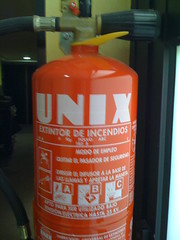

| Main index | Section 3 | Options |
#include <curses.h>unsigned curses_trace(const unsigned trace-mask);
void _tracef(const char *format, ...);
char *_traceattr(attr_t attr); char *_traceattr2(int buffer, chtype ch); char *_tracecchar_t(const cchar_t *string); char *_tracecchar_t2(int buffer, const cchar_t *string); char *_tracechar(int c); char *_tracechtype(chtype ch); char *_tracechtype2(int buffer, chtype ch);
void _tracedump(const char *label, WINDOW *win); char *_nc_tracebits(void); char *_tracemouse(const MEVENT *event);
/* deprecated */ void trace(const unsigned int trace-mask);
| &#187; | Aside from curses_trace, the other functions are normally available only with the debugging library e.g., libncurses_g.a. |
| All of the trace functions may be compiled into any model (shared, static, profile) by defining the symbol TRACE. | |
| &#187; | Additionally, the functions which use cchar_t are only available with the wide-character configuration of the libraries. |
| &#187; | curses_trace, which selectively enables different tracing features, and |
| &#187; | _tracef, which writes formatted data to the trace file. |
| The other functions either return a pointer to a string-area (allocated by the corresponding function), or return no value (such as _tracedump, which implements the screen dump for TRACE_UPDATE). The caller should not free these strings, since the allocation is reused on successive calls. To work around the problem of a single string-area per function, some use a buffer-number parameter, telling the library to allocate additional string-areas. | |
| &#187; | If tracing is available, calling curses_trace with a nonzero parameter updates the trace mask, and returns the previous trace mask. |
| When the trace mask is nonzero, ncurses creates the file trace in the current directory for output. If the file already exists, no tracing is done. | |
| &#187; | If tracing is not available, curses_trace returns zero (0). |
| TRACE_DISABLE | |
| turn off tracing by passing a zero parameter. | |
| The library flushes the output file, but retains an open file-descriptor to the trace file so that it can resume tracing later if a nonzero parameter is passed to the curses_trace function. | |
| TRACE_TIMES | |
| trace user and system times of updates. | |
| TRACE_TPUTS | |
| trace tputs(3X) calls. | |
| TRACE_UPDATE | |
| trace update actions, old & new screens. | |
| TRACE_MOVE | |
| trace cursor movement and scrolling. | |
| TRACE_CHARPUT | |
| trace all character outputs. | |
| TRACE_ORDINARY | |
| trace all update actions. The old and new screen contents are written to the trace file for each refresh. | |
| TRACE_CALLS | |
| trace all curses calls. The parameters for each call are traced, as well as return values. | |
| TRACE_VIRTPUT | |
| trace virtual character puts, i.e., calls to addch. | |
| TRACE_IEVENT | |
| trace low-level input processing, including timeouts. | |
| TRACE_BITS | |
| trace state of TTY control bits. | |
| TRACE_ICALLS | |
| trace internal/nested calls. | |
| TRACE_CCALLS | |
| trace per-character calls. | |
| TRACE_DATABASE | |
| trace read/write of terminfo/termcap data. | |
| TRACE_ATTRS | |
| trace changes to video attributes and colors. | |
| TRACE_MAXIMUM | |
| maximum trace level, enables all of the separate trace features. | |
Because the command-line utilities may call initialization functions such as setupterm, tgetent or use_extended_names, some of their debugging output may be directed to the trace file if the NCURSES_TRACE environment variable is set:
| &#187; | messages produced in the utility are written to the standard error. |
| &#187; | messages produced by the underlying library are written to trace. |
filter, initscr, new_prescr, newterm, nofilter, restartterm, ripoffline, setupterm, slk_init, tgetent, use_env, use_extended_names, use_tioctl
| &#187; | SVr4 provided traceon and traceoff, to control whether debugging information was written to the trace file. While the functions were always available, this feature was only enabled if DEBUG was defined when building the library. |
| The SVr4 tracing feature is undocumented. | |
| &#187; | PDCurses provides traceon and traceoff, which (like SVr4) are always available, and enable tracing to the trace file only when a debug-library is built. |
| PDCurses has a short description of these functions, with a note that they are not present in X/Open Curses, ncurses or NetBSD. It does not mention SVr4, but the functions' inclusion in a header file section labeled Quasi-standard hints at the origin. | |
| &#187; | NetBSD does not provide functions for enabling/disabling traces. It uses environment variables CURSES_TRACE_MASK and CURSES_TRACE_FILE to determine what is traced, and where the results are written. This is available only when a debug-library is built. |
| The NetBSD tracing feature is undocumented. | |
_nc_tracebits, _tracedump, _tracemouse
The original trace routine was deprecated because it often conflicted with application names.
| 2024-04-20 | curs_trace (3X) | ncurses 6.5 |

| Main index | Section 3 | Options |
Please direct any comments about this manual page service to Ben Bullock. Privacy policy.
